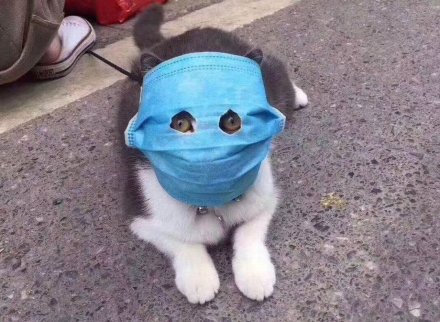Veterinarians are often o
Veterinarians are often overlooked by the general public as a resource when it comes to health crises, however, we are a critical component in the One Health movement and work in close collaboration with other authorities such as the World Health Organization and the Centers for Disease Control and Prevention. Case in point is the recent coronavirus outbreak, a type of RNA virus with a “crown” of protein spikes around its envelope which acts as a shield, ensuring the stability of the virus and its ability to cause infection. Veterinarians have a long history of diagnosing and treating strains of coronavirus in domestic animals such as dogs, cats, and birds. Our patients are often the literal “canaries in the coal mine”; our experience in everything from sequencing to managing coronavirus outbreaks is critical to preventing this epidemic from becoming pandemic. A lot of what we know about the recent outbreak of the strain dubbed 2019-nCoV/COVID-19 (or SARS-CoV-2) is based on information we know about other coronaviruses, including the strains that cause Feline Infectious Peritonitis as well as MERS-CoV and SARS-CoV in humans. Coronaviruses belong to the family Coronaviridae. Alpha- and beta-coronaviruses usually infect mammals, while gamma and delta coronaviruses usually infect birds and fish. Canine coronavirus, which can cause mild diarrhea, as well as the FIP inducing coronavirus are both alpha-coronaviruses. Until the appearance of 2019-nCoV, which belong to the beta-coronaviruses, there were only six known coronaviruses capable of infecting humans and causing respiratory disease, including the severe acute respiratory syndrome coronavirus SARS-CoV (identified in 2002/2003) and Middle East respiratory syndrome coronavirus MERS-CoV (identified in 2012).
The first cases of COVID-19 were reported in December 29 in Wuhan City, Hubei province, China; reports suggest a seafood and animal market may have been ground-zero for the epidemic. The genetic code of this strain resembles a coronavirus which infects the Horseshoe Bat though currently the main route of new infections appears to close contact with other humans and their secretions. Coughing, sneezing, and contact with aerosolized particles is the most likely way to acquire disease. If possible, stay away from infected individuals or those with respiratory symptoms by a distance of at least 6 feet. Coronaviruses are most contagious when an individual is experiencing signs of the illness such as coughing, fever, and difficulty breathing.
Are face masks helpful? Not likely, unless the wearer is protected by a special respirator mask called a N95. It is not readily available and is not the same as a standard surgical mask which protects a sterile surgical field from fluids expelled by the surgeon. It does not appear that 2019-nCoV “jumps species” readily or is zoonotic though handling of animals while ill is discouraged. Coronaviruses are not particularly hardy in the environment, meaning its particles do not survive on surfaces or in the air for long periods of time. This makes proper hygiene essential in controlling the spread of disease. Handwashing with soap and water, staying inside if you are ill, disinfecting surfaces, staying clear of symptomatic humans and animals, avoiding touching your eyes, nose and mouth, and cooking all animal products will help contain the spread of coronavirus. Unfortunately, anti-viral treatment and an effective human vaccine are not yet available.
As of February 18, 2020, over 73000 cases have been reported world-wide, with individuals infected in 15 states including Illinois, Arizona, California, Texas, and Wisconsin. Because COVID-19 is highly contagious and appears to cross multiple generations easily, travel has been restricted to affected area and has included a quarantine of cruise ship passengers potentially exposed to the virus.
As a pet owner living in the United States, what should you know? Currently, veterinarians do not have reason to believe dogs and cats can become infected by 2019-nCOV. Canine enteric (gastrointestinal) coronavirus vaccines are NOT protective against human respiratory variants of coronavirus. There is no evidence to suggest that cats and dogs can host 2019-nCoV or act as a reservoir for humans. If you suspect your pet has been in contact with an individual exposed to 2019-nCoV and becomes ill, contact your veterinarian prior to bringing your pet to a public place such as a clinic. As with most novel diseases, new information is gathered daily and is subject to change. The most up-to-date information and advice on human infection can be found on the WHO (https://www.who.int/emergencies/diseases/novel-coronavirus-2019) and the CDC websites(https://www.cdc.gov/coronavirus/about/index.html). The most up-to-date information related to animal health is available at https://www.oie.int/scientific-expertise/specific-information-and recommendations/questions-and-answers-on-2019novel-coronavirus/.
Dr. Lisa McIntyre
1.https://www.avma.org/blog/what-do-you-need-know-about-coronavirus
2.https://www.cdc.gov/coronavirus/2019-ncov/about/transmission.html